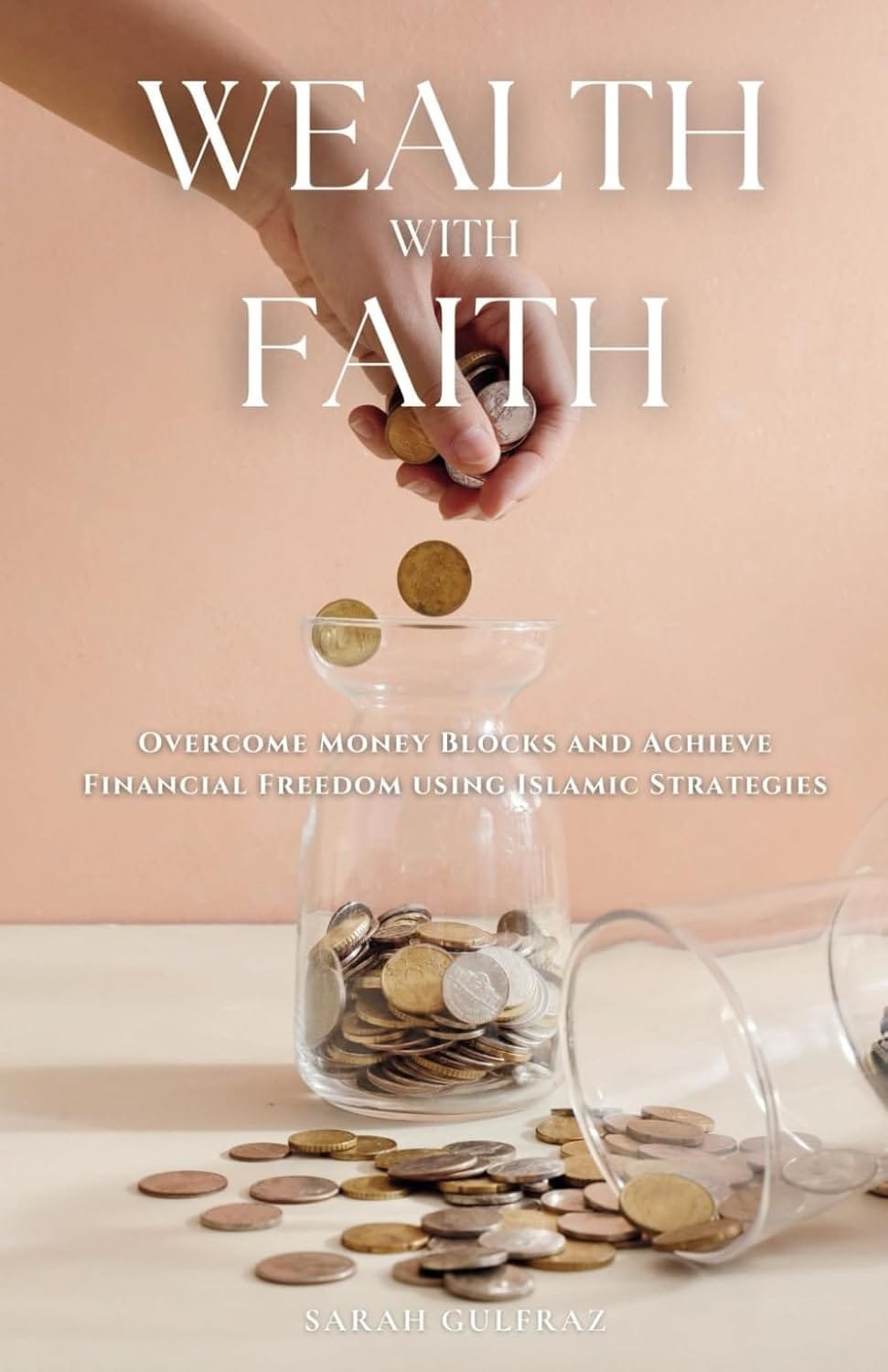SPECIAL REPORT SACRED WEALTH
Top 10 Money Insights from 7 World Religions You Can’t Afford to Ignore
Intro | Christianity | Islam | Hinduism | Buddha | Shinto | Sikhism | Judaism | Conclusion

PART 3: Here are the Top 10 Practical insights from the words of the Prophet Mohammad that will transform your relationship with money
Islam is an Abrahamic monotheistic religion centered on the Quran and the teachings of Muhammad. Adherents of Islam are called Muslims, who are estimated to number approximately 1.9 billion worldwide and are the world’s second-largest religious population after Christians.
Financial freedom is a goal sought by many, but the journey toward it is often fraught with challenges.
For Muslims and others seeking spiritual and practical guidance, the teachings of the Prophet Mohammed (peace be upon him) and the Holy Koran offer profound wisdom on managing wealth and achieving financial stability.
Here, we explore 10 transformative lessons inspired by these timeless principles.
1. Wealth as a Blessing, Not a Burden
The Koran describes wealth as a blessing from Allah, meant to be used responsibly. Surah Al-Baqarah (2:177) emphasizes the importance of spending in the way of Allah by helping family, orphans, and the needy. This teaches us to view money as a means to contribute positively to society while enjoying its benefits.
2. Earning Through Honest Work
The Prophet Mohammed (peace be upon him) said, “The best earnings are those of a man’s own hands” (Hadith). This reinforces the value of earning an honest living through legitimate means. Pursuing ethical income sources not only pleases Allah but also brings peace of mind.
3. Avoiding Debt
Debt can be a heavy burden. The Prophet often prayed, seeking refuge from the oppression of debt. While borrowing is permissible, it should be done cautiously and repaid promptly. The Koran’s guidance in Surah Al-Baqarah (2:282) about documenting debts also encourages accountability and transparency.
4. The Power of Zakat (Charitable Giving)
Zakat, one of the Five Pillars of Islam, is a profound reminder that wealth is a trust from Allah. Giving 2.5% of one’s eligible savings annually helps purify wealth and aids the less fortunate. This act cultivates generosity and ensures the circulation of wealth within the community.
5. Saving Without Hoarding
The Koran advises against hoarding wealth selfishly (Surah At-Tawbah, 9:34). Balancing saving for future needs with spending for immediate necessities and charitable causes fosters a healthy financial mindset.
6. Moderation in Spending
“And be not excessive. Indeed, He likes not those who commit excess” (Surah Al-An’am, 6:141). This verse encourages living within one’s means. Practicing moderation in lifestyle and avoiding wasteful expenditures is key to long-term financial stability.
7. Planning and Budgeting
The Prophet Mohammed (peace be upon him) emphasized thoughtful planning in various aspects of life. Financial planning aligns with this guidance, enabling individuals to set goals, budget effectively, and allocate resources wisely.
8. The Importance of Trust in Trade
In a Hadith, the Prophet said, “The truthful and honest merchant is associated with the prophets, the saints, and the martyrs” (Tirmidhi). Integrity in financial dealings fosters trust and builds lasting relationships, vital for sustainable financial growth.
9. Patience and Gratitude in Financial Challenges
The Koran frequently emphasizes patience (sabr) and gratitude (shukr). In times of financial hardship, trusting in Allah’s plan and maintaining gratitude for existing blessings can bring solace and hope.
10. Avoiding Interest (Riba)
The prohibition of riba (interest) in Islam (Surah Al-Baqarah, 2:275) stems from its exploitative nature. Instead, Muslims are encouraged to engage in equitable financial practices, such as profit-sharing and ethical investments, promoting fairness and social equity.
 Purchase “Wealth with Faith: Overcome Money Blocks and Achieve Financial Freedom using Islamic Strategies (Personal Development in Islam) ” on Amazon.com
Purchase “Wealth with Faith: Overcome Money Blocks and Achieve Financial Freedom using Islamic Strategies (Personal Development in Islam) ” on Amazon.com
Conclusion
The teachings of the Prophet Mohammed and the Koran provide a comprehensive framework for managing wealth with integrity, generosity, and foresight. By applying these principles, anyone—regardless of faith—can cultivate a balanced and spiritually fulfilling approach to money, paving the way toward true financial freedom.
#Prophet Mohammad financial advice #Koran wealth management #Islamic financial principles #financial freedom in Islam #Zakat and wealth #avoiding debt in Islam #honest earnings in Islam #moderation in spending #Islamic money management #avoiding riba #ethical wealth practices #saving and spending in Islam #financial planning in Islam #gratitude and patience in finances #charitable giving in Islam
 Read The Complete Special Report Here
Read The Complete Special Report Here
 The Punk Rock Prophet Joe Strummer from THE CLASH once said, “Without people, you’re nothing.” This profound insight could just as easily reflect the true value of money when considered in the context of humanity.
The Punk Rock Prophet Joe Strummer from THE CLASH once said, “Without people, you’re nothing.” This profound insight could just as easily reflect the true value of money when considered in the context of humanity.
Charles Bivona Jr., aka Coach JP Money, is a business strategist, financial coach, and founder of CoachJPmoney.com. A lifelong entrepreneur, he launched his first real estate deal at 17 and went debt-free by 1998. Since then, he has built national media brands, advised small businesses, and helped clients grow online using smart strategy, digital tools, and creative grit.
An expat living in Baja, Mexico, Charles also writes and produces music as Johnny Punish and lives off-grid at Hacienda Eco-Domes, a sustainable retreat he built with his wife. Through providing small business services, coaching, writing, and podcasting, he’s on a mission to help others win their future—on their terms.
Read his full bio at PunishStudios.com >>>
Post Views: 121